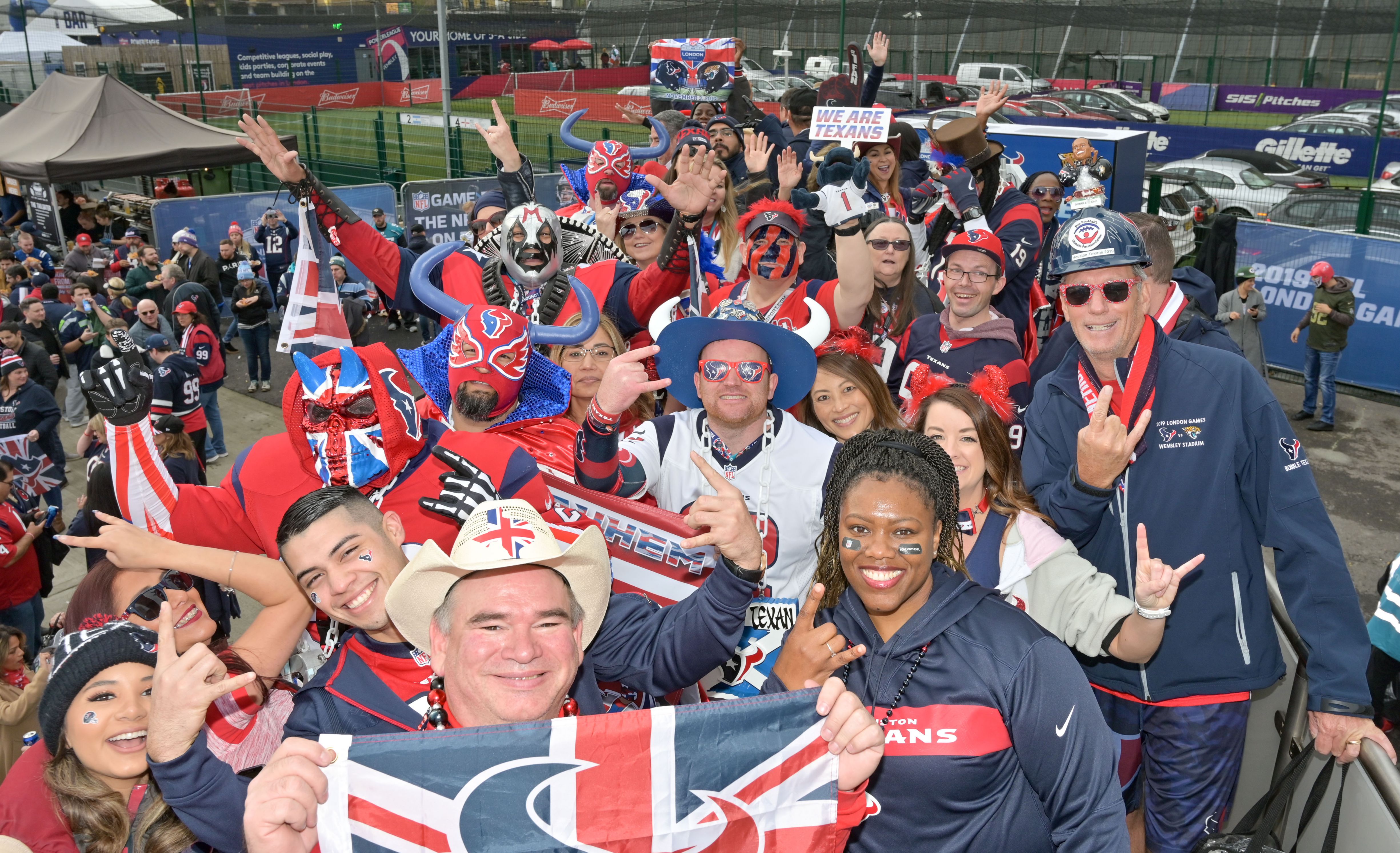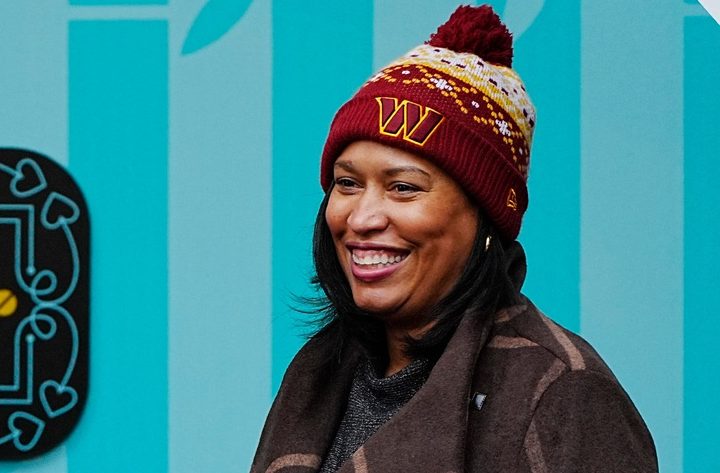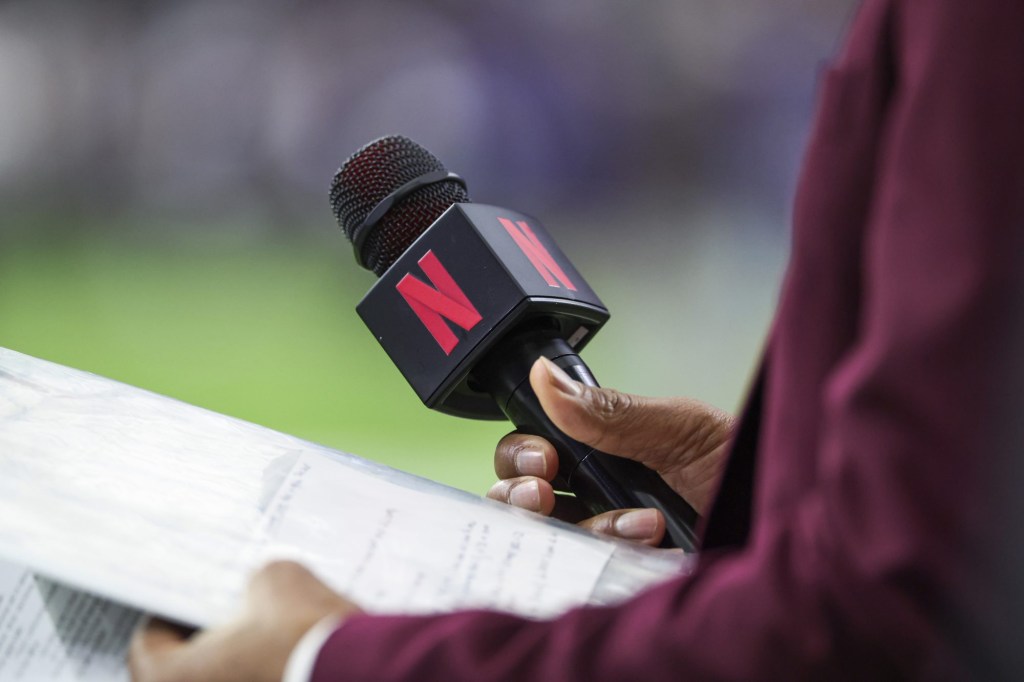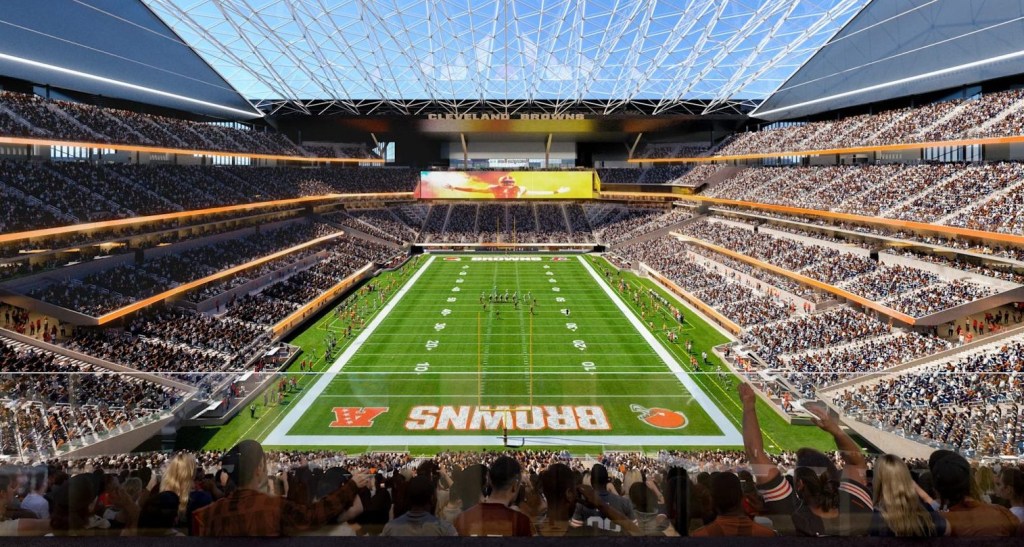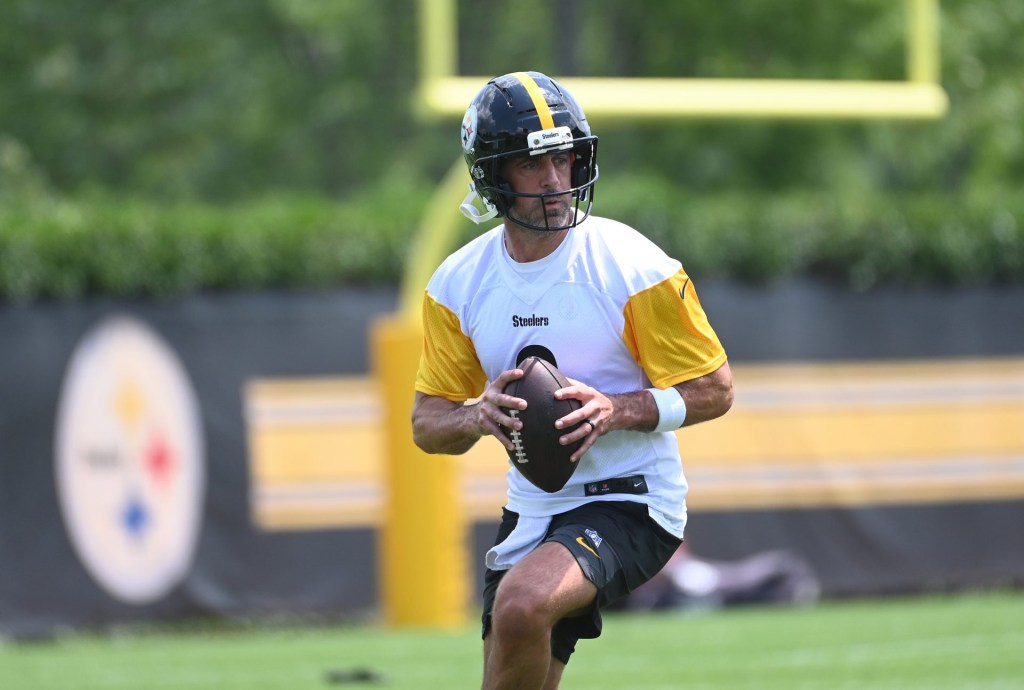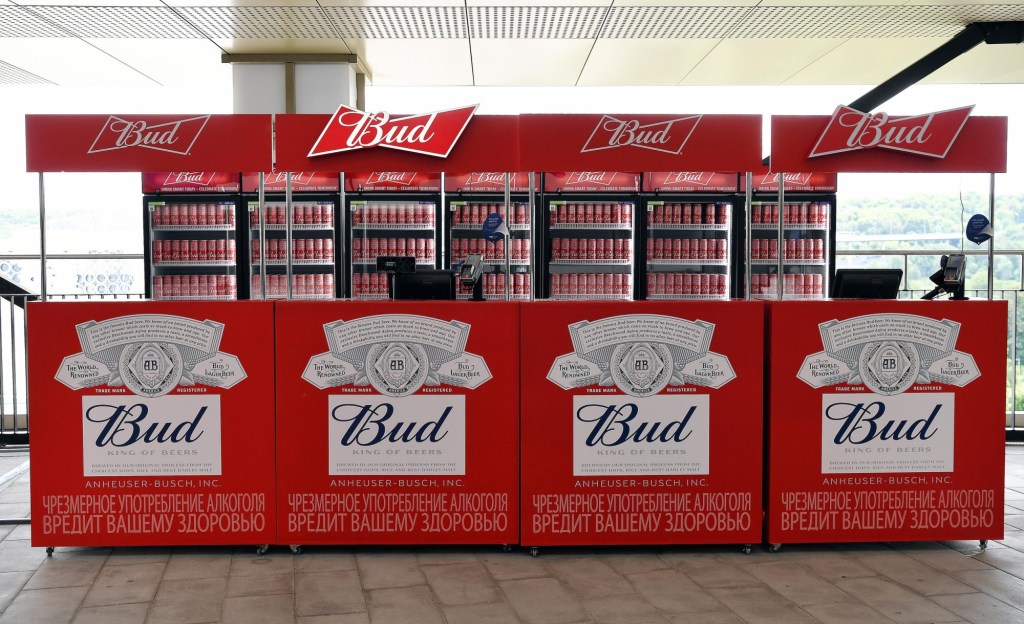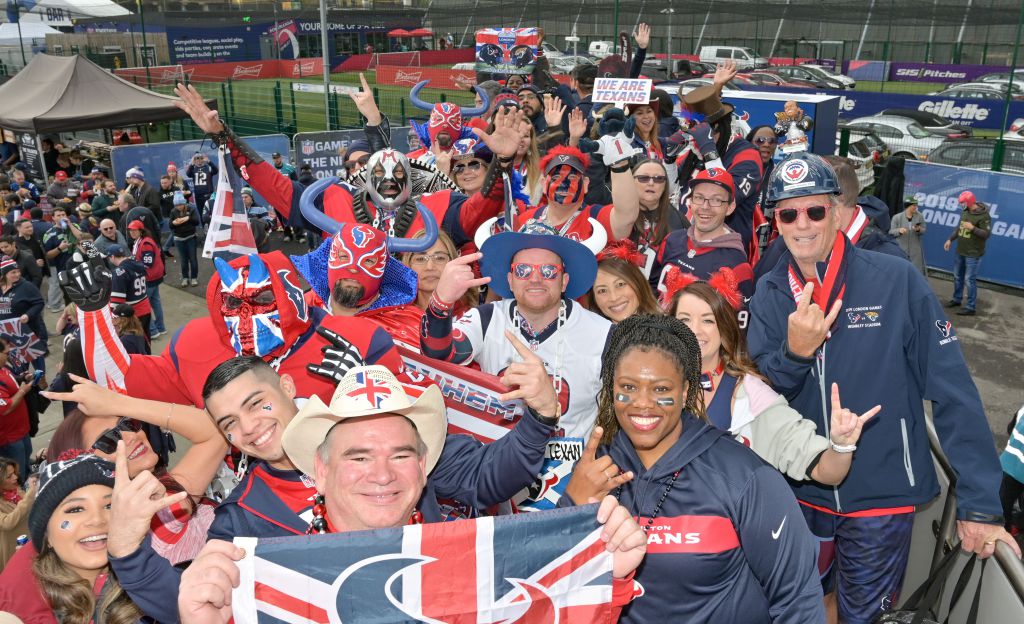
The NFL recently wrapped this season’s London schedule with its fourth and final game of this season. Based on the results, the league is optimistic about its future in the United Kingdom.
All four regular seasons games sold out at Tottenham Hotspur and Wembley Stadiums this season, drawing a total attendance of 289,041. TV viewership rose 32% in the U.K. during the 2018 season. Weekly ratings for Sky Sports have doubled over the last decade.
London has been such a solid addition that NFL Commissioner Roger Goodell said the league’s owners have even weighed holding the Super Bowl in the English capital – albeit deciding against it.
What a difference from 2007 when the NFL’s “International Series” played its first game in London. When it launched, many questioned if fans more accustomed to association football – better known as soccer in the U.S. – would be welcoming to American football.
Starting with that first New York Giants vs. Miami Dolphins game, there have been 28 games in London over the years, drawing 2,226,356 total fans for an average attendance of 80,941. That’s better than the average U.S. game attendance of 67,042 in 2018.
Thirty-one of the league’s 32 teams have now played at least one game in London, with the lone exception being the Green Bay Packers.
If Alistair Kirkwood, the NFL managing director in the U.K. gets his way, British fans will see Aaron Rodgers and the Packers during the 2020 season.
“With the (Houston) Texans coming over, that means we’ve had 31 of the 32 teams coming over. If you said that would be a good outcome back in 2007, I would have absolutely taken that,” said Kirkwood. “Because that shows a tremendous commitment by the league – and support of what we’re trying to do.”
Will London eventually get its own NFL club? Or serve as a Super Bowl host city?
That’s up to league owners, responded Kirkwood. But if NFL football keeps growing in the U.K. it might be hard to say no.
Several factors have led to the NFL’s success in the U.K. thus far.
There’s no better way to get international fans interested in a foreign game than for real teams to play games that mean something, not meaningless exhibitions. No NFL team has dedicated itself to the London market like the Jacksonville Jaguars.
Under a deal that runs into the 2020 season, the team has played a home game in London each of the past six seasons. If the NFL continues to succeed in the U.K., the Jaguars should get a big vote of thanks, said Kirkwood.
“The Jags have done a brilliant job for us. Without them we would not have had certainty of games, we wouldn’t have gone to multiple games. So their commitment is great,” he said.
The title of the most popular NFL team in the U.K. goes, however, to Tom Brady’s six-time Super Bowl champion New England Patriots.
“That’s partly from their success in recent years. It’s also partly because some British folks don’t know their American history,” he joked. “They just look at ‘England’ in the name – and think it’s a positive thing. Maybe we need some history lessons.”
The NFL is also attracting a younger fan base in the U.K. compared to the U.S. The league’s research indicated it now boasts more than 13 million fans in the U.K., including four million avid ones.
Social media followers in the U.K on the league Facebook page, as well as local Instagram and Twitter accounts, grew 16% in 2018. The league now has over one million digital followers in the U.K.
Sky Sports now provides 110 hours of NFL coverage per week. Roughly 21 million U.K. sports fans watched some NFL programming in 2018.
Kirkwood is not surprised the NFL attracts younger fans in England. Youthful fans, after all, are more willing to try out a new sport than older sports fans more stuck in their ways.
The U.K’s young fans are particularly intrigued, according to Kirkwood, by “flair players” such as quarterbacks Patrick Mahomes of the Kansas City Chiefs and Lamar Jackson of the Baltimore Ravens.
“They are substantially increasing in popularity in our market.”
READ MORE: 49ers Finding Success In Tech-Rich Silicon Valley
To have a year-round presence, the league launched its first NFL Academy for athletes aged 16-18 in north London this past September.
British fans will be more interested in American football if more local players put on the helmet and shoulder pads for NFL teams.
Nine British natives are now working their way through NFL teams. League veterans Osi Umenyiora, Jay Ajayi, and Efe Obada were born or raised in London. American stars like Mahomes and Odell Beckham Jr. have agreed to serve as “ambassadors” for the U.K. academy.
“Being from London, and having spent time with so many young athletes there, I know how much the NFL Academy will mean to them,” said Obada, when the academy was announced in May. “To have the chance to pursue American football while receiving an education and other life-changing skills is an awesome opportunity.”
Troy Vincent, the NFL’s executive vice president of football operations, said getting U.S. athletes born overseas involved in foreign camps and youth clinics is a big key to international growth. The NBA has done that brilliantly, he said.
“Look at how engaged their athletes are in going into the communities where they came from, where they were raised, and developing start-up camps, clinics, local leagues,” Vincent said. “We’ve seen that model – but it started with their players. Their players going home and spending their off-seasons there.”
Former NFL executive Mike Lombardi agreed with Vincent.
Teaching foreign fans the basics of NFL football is a tough job. But once they do understand the strategy involved in American football, many come to love it.
“It’s chess on grass,” said Lombardi.
READ MORE: London Calling: Why MLB Is Finally Invading Europe
Is the NFL’s concerned about Major League Baseball’s recent expansion into the U.K. No, said Kirkwood. That’s just the way of global sports.
“I wouldn’t say MLB is copying. If they were copying, it’s a form of flattery. I think it’s more they’ve got their own objectives. I think it’s common for all sports to be looking to become more global, and more relevant, to a broader group of people.”
